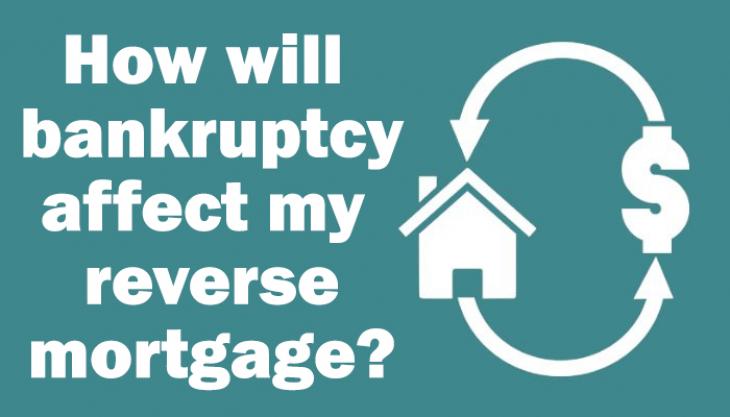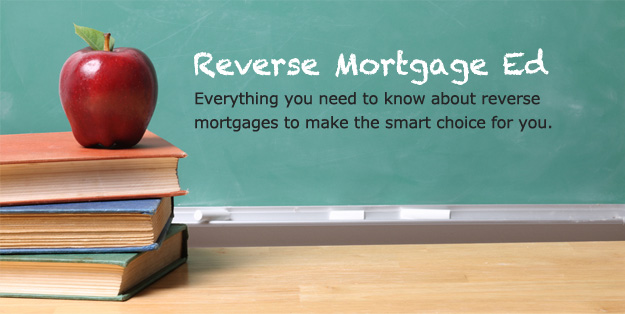How to Purchase Reverse Mortgage and Unlock Your Home’s Equity
How to Purchase Reverse Mortgage and Unlock Your Home’s Equity
Blog Article
Step-By-Step: Just How to Acquisition a Reverse Mortgage With Self-confidence
Navigating the complexities of acquiring a reverse home loan can be challenging, yet a systematic approach can empower you to make educated choices. It begins with evaluating your eligibility and recognizing the nuances of different loan choices offered out there. Involving with reliable lending institutions and contrasting their offerings is crucial for securing beneficial terms. The procedure does not finish there; cautious attention to documents and conformity is essential. As we check out each step, it becomes evident that confidence in this financial choice depends upon comprehensive prep work and informed choices. What comes next in this important trip?
Comprehending Reverse Home Mortgages

The key device of a reverse home mortgage involves loaning against the home's worth, with the lending amount raising over time as interest accrues. Unlike traditional home mortgages, consumers are not needed to make regular monthly repayments; rather, the funding is paid back when the property owner offers the residential or commercial property, leaves, or passes away.
There are 2 primary types of reverse mortgages: Home Equity Conversion Home Mortgages (HECM), which are government insured, and exclusive reverse home mortgages supplied by personal lenders. HECMs generally provide higher protection as a result of their regulative oversight.
While reverse home loans can supply monetary relief, they likewise include costs, including origination fees and insurance costs. Consequently, it is crucial for prospective borrowers to completely understand the terms and ramifications prior to waging this economic alternative.
Analyzing Your Eligibility
Qualification for a reverse home loan is primarily figured out by numerous key elements that prospective consumers must think about. Candidates need to be at the very least 62 years of age, as this age need is set to guarantee that debtors are coming close to or in retired life. In addition, the home has to work as the consumer's main house, which suggests it can not be a trip or rental building.
An additional essential facet is the equity placement in the home. Lenders typically call for that the consumer has an enough quantity of equity, which can impact the amount available for the reverse mortgage. Normally, the a lot more equity you have, the larger the loan quantity you may receive.
In addition, potential borrowers need to demonstrate their capacity to meet financial commitments, consisting of real estate tax, house owners insurance policy, and maintenance costs - purchase reverse mortgage. This evaluation typically includes an economic evaluation conducted by the loan provider, which assesses income, credit report, and existing debts
Finally, the residential property itself must meet certain criteria, consisting of being single-family homes, FHA-approved condominiums, or particular manufactured homes. Comprehending these factors is essential for identifying qualification and planning for the reverse home mortgage process.

Researching Lenders
After identifying your qualification for a reverse mortgage, the next step entails researching lenders who provide these economic items. It is essential to determine reliable loan providers with experience backwards home mortgages, as this will guarantee you receive reputable advice throughout the procedure.
Begin by reviewing loan provider credentials and accreditations. Try to find lending institutions who are members of the National Reverse Home Loan Lenders Association (NRMLA) and are authorized by the Federal Real Estate Management (FHA) These associations can indicate a useful site commitment to ethical practices and compliance with industry criteria.
Reviewing consumer evaluations and testimonies can supply understanding into the loan provider's track record and client service high quality. Websites like the Better Business Bureau (BBB) can additionally offer rankings and grievance backgrounds that may aid educate your choice.
Additionally, talk to monetary experts or real estate counselors who specialize in reverse home loans. Their proficiency can help you browse the options offered and recommend trustworthy lending institutions based upon your special financial scenario.

Contrasting Funding Choices
Comparing funding choices is an essential action in safeguarding a reverse home loan that aligns with your financial objectives. When analyzing various reverse home loan items, it is vital to take into consideration the specific functions, prices, and terms connected with each choice. Begin by assessing the kind of reverse home loan that best matches your needs, such as Home Equity Conversion Home Mortgages (HECM) or proprietary fundings, which might have various eligibility criteria and advantages.
Following, pay focus to the interest prices and fees connected with each financing. Fixed-rate financings supply stability, while adjustable-rate choices might provide reduced first prices yet can change with time. Furthermore, think about the upfront expenses, consisting of mortgage insurance coverage costs, source fees, and closing prices, as these can significantly affect the total expenditure of the loan.
Moreover, analyze the payment terms and how they line up with your long-lasting economic approach. Recognizing the implications of how and when the loan need to be settled is essential. By extensively contrasting these aspects, you can make an continue reading this educated decision, ensuring your option sustains your monetary wellbeing and offers the safety you seek in your retirement years.
Wrapping Up the Purchase
Once you have actually carefully evaluated your choices and selected one of the most appropriate reverse mortgage item, the following action is to finalize the acquisition. This procedure entails a number of critical actions, guaranteeing that all needed paperwork is properly finished and sent.
First, you will certainly require to gather all called for paperwork, consisting of evidence of earnings, home tax declarations, and property owners insurance policy paperwork. Your lender will give a list of particular papers required to facilitate the authorization procedure. It's important to offer total and precise info to avoid hold-ups.
Next, you will certainly go through an extensive underwriting process. Throughout this stage, the loan provider will certainly assess your economic situation and the worth of your home. This may include a home appraisal to figure out the residential or commercial property's market price.
When underwriting is full, you will get a Closing Disclosure, which lays out the last regards to the financing, consisting of costs and interest rates. Evaluation this document meticulously to make sure that it aligns with your assumptions.
Verdict
Finally, navigating the process of acquiring a reverse mortgage needs a comprehensive understanding of qualification standards, diligent research on loan providers, and mindful contrast of finance options. By systematically complying with these actions, people can make informed choices, making certain that the selected mortgage lines up with financial objectives and requirements. Inevitably, an educated strategy fosters self-confidence in safeguarding a reverse mortgage, offering economic stability and assistance for the future.
Look for lending institutions that are participants of the this post National Reverse Home Mortgage Lenders Association (NRMLA) and are accepted by the Federal Real Estate Administration (FHA)Contrasting funding alternatives is an important action in securing a reverse mortgage that lines up with your economic goals (purchase reverse mortgage). Beginning by reviewing the kind of reverse home loan that ideal suits your requirements, such as Home Equity Conversion Mortgages (HECM) or exclusive fundings, which might have different qualification standards and advantages
In conclusion, browsing the process of acquiring a reverse home mortgage calls for a comprehensive understanding of eligibility criteria, thorough research on lending institutions, and careful contrast of financing alternatives. Ultimately, a knowledgeable strategy fosters self-confidence in safeguarding a reverse home loan, offering financial security and support for the future.
Report this page